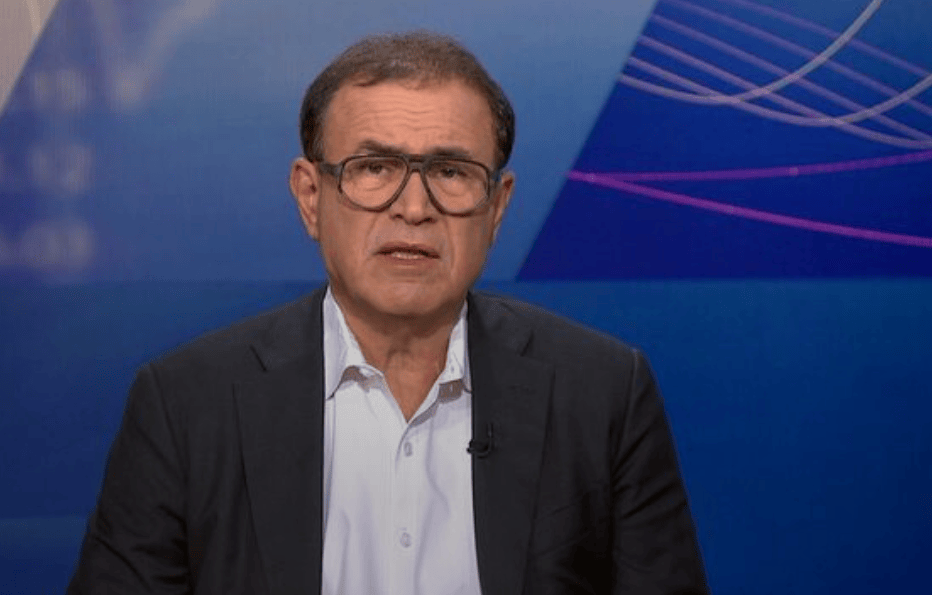Bank of England Can't Afford to Rest at 5.5% says Roubini
- Written by: Gary Howes

Above: Nouriel Roubini speaks on Sept. 18. Image still courtesy of Bloomberg.
The Bank of England's apparent plan of raising interest rates to 5.50% this week but then calling a halt to the rate hiking cycle is tantamount to a mistake, according to a prominent economist.
Nouriel Roubini, professor of economics and international business at Stern School of Business in New York, says instead the Bank "should be hiking rates all the way to 5.75%."
Roubini, who gained fame by predicting the 2008 financial crisis, says the Bank must keep increasing interest rates to avoid "true stagflation."
Stagflation describes an economy suffering from high inflation and low growth and is considered an unsupportive backdrop for a currency and financial assets linked to that country. It is the fear of stagflation that keeps a number of analysts bearish on the Pound's outlook.
In an interview with Bloomberg, Roubini says the Bank of England and European Central Bank face a dilemma: "On one side, the contracting economic activity will lead them to maybe stop at this point. On the other, if inflation remains much higher than the target, they may need to hike much more."
The Bank of England has signalled via its Governor and Chief Economist it is close to ending its interest rate hiking cycle, leading investors to price in just one more rate hike, due this coming Thursday.
The lowering of rate hike expectations - at one stage the market saw a peak in Bank Rate at ~6.5% - is consistent with the underperformance in Pound Sterling since August.
Roubini says the recent dovish signals from the Bank are a "problem."
"The signals are telling us they're not sure whether they want to hike more," he said. Without further rate increases, "there could be a de-anchoring of inflation and true stagflation".
This describes a situation where consumers and businesses anticipate inflation staying high for elongated periods, prompting workers to demand higher wages and businesses to hike prices, creating an inflationary spiral.
It is something Bank of England Monetary Policy Committee member Catherine Mann has long cautioned against.
Mann said in her most recent speech she would rather 'over hike' than contribute to a situation whereby doing too little meant inflation stayed high for too long.
This ultimately requires more in terms of rate hikes down the line.
Roubini says structural changes to the global economy – from ageing demographics to supply chain geopolitics — will keep inflation high.
As a result, central banks will over time have to raise their inflation target from 2% to 3% or 4%, he said.
"Both on the supply side and the demand side, there are factors implying that 2% is at this point mission impossible. And the new normal may be somewhere between 3% and 4% for advanced economies over time, of course not overnight," said Roubini.
But Simon French, Economist at Panmure Gordon, says he must "respectfully disagree" with Roubini's views.
"There is a significant body of evidence that price expectations (market & survey-based) have absorbed Q1/Q2 upside surprise - core CPI & wages - as a blip," he explains.
French says the lagged transmission of the +515bp worth of rate hikes into the economy, hiking any distance beyond 5.5% "risks being a policy mistake."



